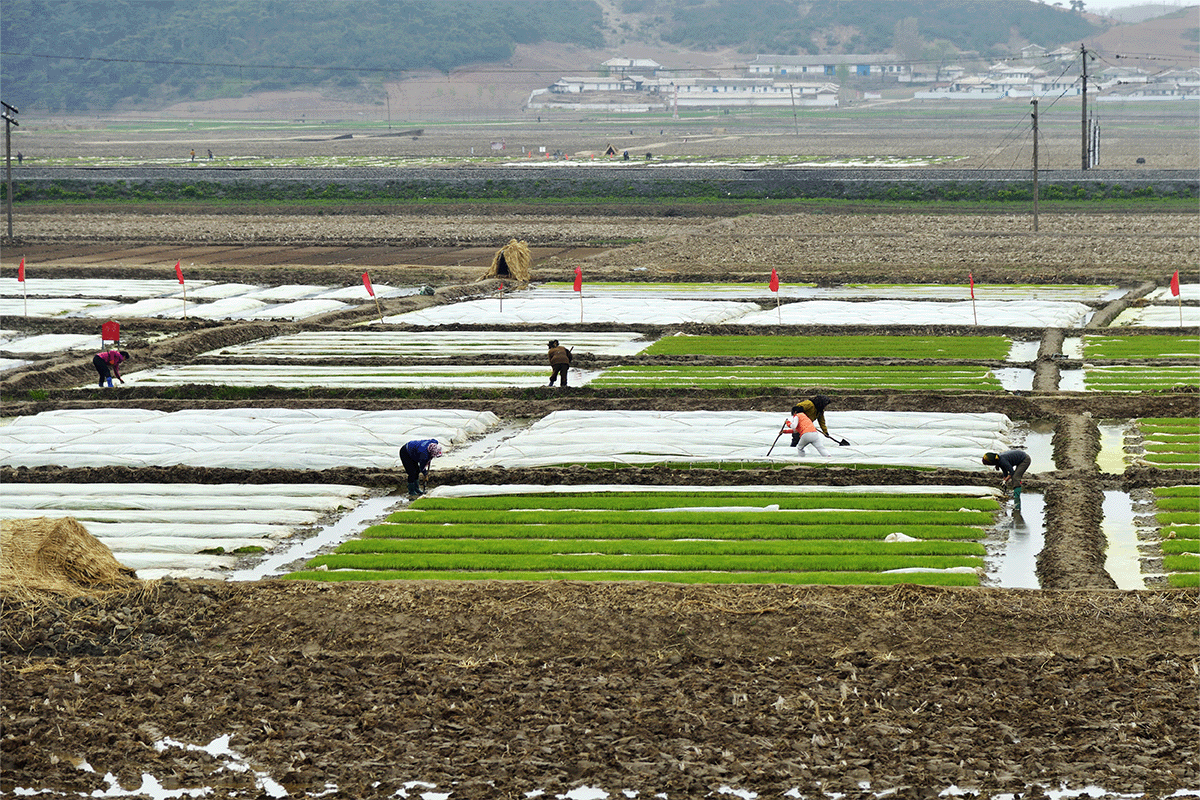North Korea, a country known for its political and economic isolation, faces a severe deforestation problem threatening its food security. The nation experienced significant deforestation over the past several decades, with estimates suggesting that around 75% of forest cover has been lost since the 1950s. Deforestation in North Korea is driven by several factors, including the demand for woodfuel, conversion of forest land to agricultural use, and industrial development.

The effects of deforestation in North Korea
The effects of deforestation in North Korea are far-reaching, with negative consequences for both the environment and people's livelihoods. One of the most significant impacts of deforestation is on food security. The country heavily relies on agriculture to feed its population, but deforestation has led to a decline in soil quality, erosion, and decreased crop yields. Forests play a crucial role in maintaining soil fertility, regulating water cycles, and reducing soil erosion. The loss of forests has, therefore, contributed to a decline in agricultural productivity, leading to food shortages and increased food prices.
Read more: Top 10 causes of deforestation
Deforestation in North Korea also severely impacts the country's biodiversity. Many of the country's unique plant and animal species are at risk of extinction due to habitat loss and degradation. The destruction of forests also leads to soil erosion, flooding, and landslides, which pose a significant threat to human settlements and infrastructure.
 A tiger (Panthera tigris), one of the multiple endangered species from North Korea.
A tiger (Panthera tigris), one of the multiple endangered species from North Korea.
North Korea’s initiatives
Several initiatives have been implemented to address the deforestation problem in North Korea, including reforestation programmes, promoting sustainable forest management practices, and increasing public awareness of the importance of forests. One notable initiative is the Green Forest programme, launched in 2005, which aims to plant one billion trees by 2015. However, the effectiveness of these initiatives is limited by the country's political and economic situation, which poses significant challenges to their implementation and sustainability.
Read about: Countries with the highest deforestation rates in the world
The North Korean government recognises the importance of forests for the country's socio-economic development and included afforestation and reforestation in its national development plans. However, implementing these plans requires resources, including funding, technology, and skilled human resources. Additionally, the country's political and economic isolation limits access to international support and collaboration, which is crucial for addressing deforestation on a global scale.
 Countryside scene. Farmers working in North Korean fields.
Countryside scene. Farmers working in North Korean fields.
Conclusion
In conclusion, North Korea's deforestation threatens the country's food security, biodiversity, and environmental sustainability. While several initiatives have been implemented to combat deforestation, the effectiveness of these initiatives is limited by the country's political and economic situation.
Addressing deforestation in North Korea requires a concerted effort by the government, civil society, and the international community to ensure sustainable forest management practices and promote public awareness of the importance of forests.
DGB Group aims to promote sustainable practices and reforest the world at scale. DGB works with various stakeholders, such as governments and communities, to develop large-scale, impactful nature-based projects that restore nature and capture large amounts of carbon. These projects help the regeneration of biodiversity, the restoration of vital habitats, and the sustainable development of communities.
Contact us to find out more about our projects and how you can get involved



